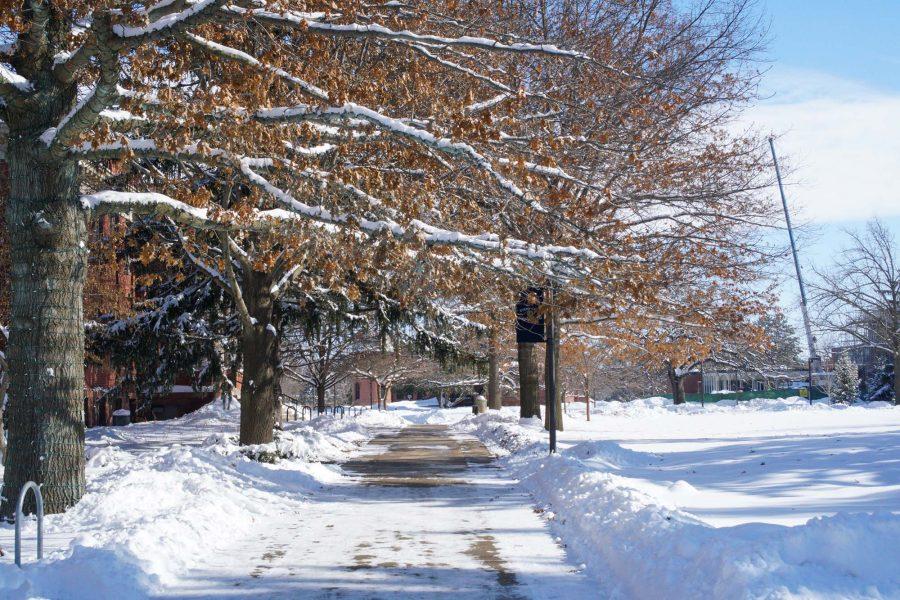Carleton is well on its way to its goal of zero waste by 2030. In this case, “zero waste” means that 90 percent of all campus waste will be diverted to recycling or composting facilities rather than landfills, according to Carleton’s Zero Waste Task Force. The current three-stream sorting system is a step on the way to achieving that goal, but there is still room to grow.
Andrew Farias ’21, a Sustainability Assistant and Environmental Systems Fellow at the CCCE, says that continued education of the wider Carleton community on proper trash sorting is most important. He particularly emphasized the importance of recognizing the repercussions of throwing items in the wrong bin.
“A lot of these things are hand-sorted,” Farias said. “There are real people that are handling your waste. That’s not something we often think about. We think, ‘I’m throwing it away, it’s no longer my problem,’ but it’s going to become someone else’s. That’s not where the cycle ends.”
To better engage the campus in the zero waste project, in winter term of 2018 Carleton partnered with the Post Landfill Action Network (PLAN), an organization that aims to help college campuses learn to reduce their landfill waste, to put together a comprehensive assessment of campus waste practices. PLAN awarded Carleton 335 out of 542 possible points and helped to set a series of benchmarks to reach zero waste.
One of the main areas of improvement that the PLAN report identified was athletic events, where Carleton earned just 27.5 of the 50 available points. In response, the Sustainability Office launched the Trash Talk program in fall term of 2018. Student “trash talkers” stand by the three-stream disposal bins at athletic events and educate fans at the event on which bin their trash belongs in. In return, the students earn $10 per hour for the campus organization of their choosing.
Farias said that educational programs like Trash Talk are important because “the waste sorting process takes a lot of time to sort through all of these bags and bags of trash. If someone is already informed ahead of time then they’re able to prevent that contamination down the line.”
While just one contaminated item in the compost or recycling will not result in the entire bag being sent to the landfill, Alex Miller, Sustainability Program Coordinator, cautions against what she calls “wishcycling,” throwing something in the recycling bin that doesn’t belong in hopes that it can be recycled.
“We have a rough 1-2 percent contamination for an entire load (like a truck full) before our load will be rejected at the transfer station or compost facility and the entire truck will be sent to the landfill. That is why proper sorting is so critical—while one individual item won’t necessarily lead to a rejected load, if enough people don’t sort properly, it can lead to an entire truck being rejected,” Miller said, adding that she lives by the general rule of “when in doubt, throw it out.”
To even further reduce waste, Farias is co-leading a pilot program set to begin spring term 2020 to replace the current disposable ones with reusable ones (the ones currently used are compostable, but no waste is even better than biodegradable waste). The tester project will be funded by the Student Projects Committee, a subdivision of CSA. If all goes well, Farias said, a condition that mostly depends on whether students return their to-go containers to Sayles or if they go missing quickly, Bon Appétit has agreed to purchase a larger quantity of the containers for a permanent replacement of the paper boxes.
Zero waste by 2030 is a lofty goal, Farias admits, but he thinks that if all of Carleton gets on board, we can take strides toward it. He said, “it may be a really daunting thing to try and deal with, but we can all make those everyday individual actions to decrease the amount of waste that we produce.”










